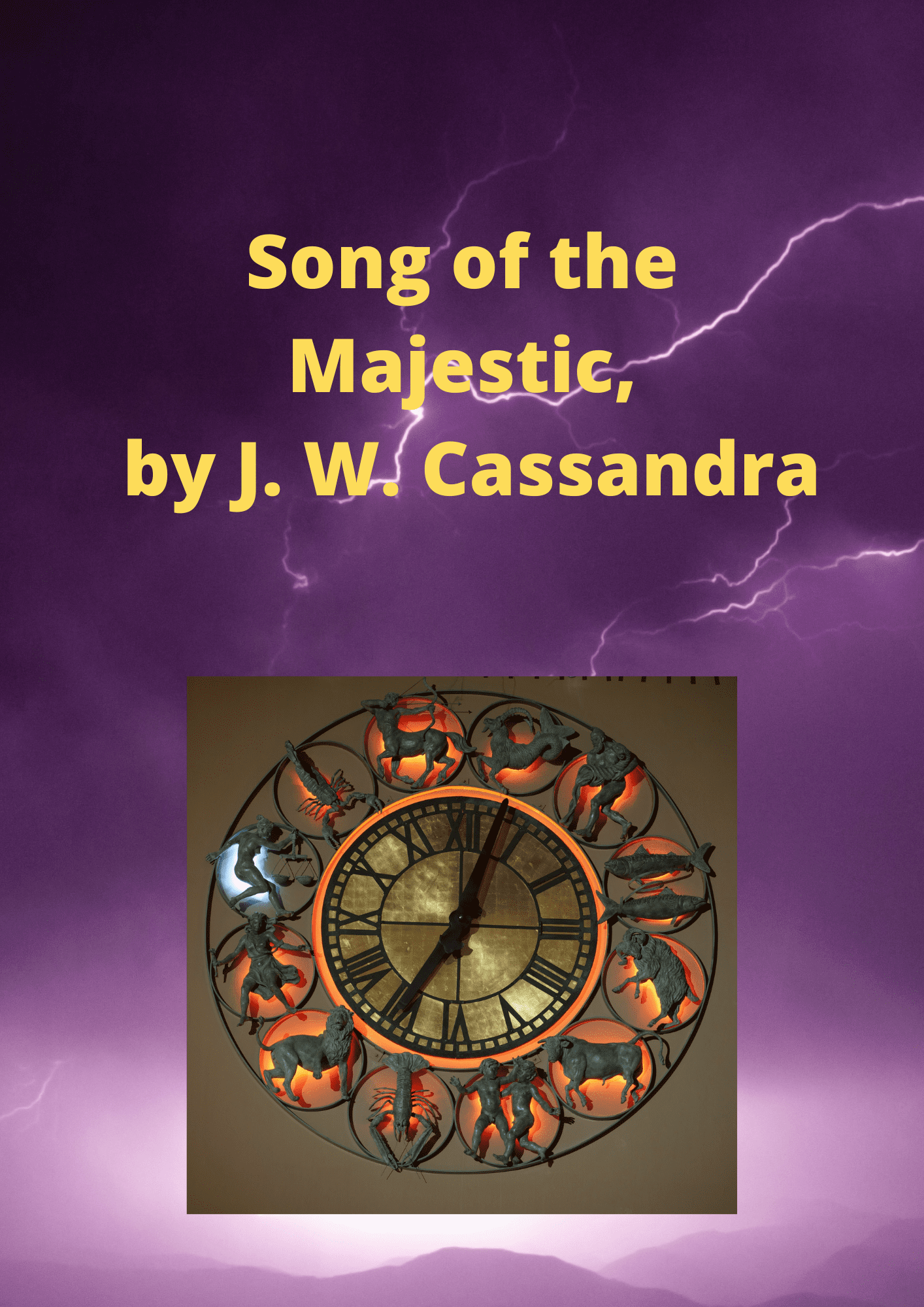
Minden, mi volt, alant Kavarog, láb alatt: Gomolygó köd láb alatt Felhők tengere, vad, Sírás, könny, fájdalom, Gyász, öröm vállamon Minden volt zubog alant: Immár mind elmarad. Súlytalan lebegés, Tollpihekeringés Lett csak puha ágyad, Köntös hull: lét-vágyad… Szó hiábavaló: A lét ébenfa ló, Nyihogva száll égre, S zuhan, vesztve féket… Lét fomaköntösén Gyöngy vagy sárgöröngy légy: Minden volt elmarad – Távolnál távolabb. S ha elenged tudat, Akkor vagy csak szabad. Akkor kél pirkadat, Akkor hallik SZAVAD… Súlytalan a közel, A távol így jön el. Összezuhan a tér, Összeomlik az én, Időtengely törik, Csontod porrá törik: Formaként üres vagy, Tudatként üres vagy: Távolnál távolabb. 2024. 06. 04., J W. Cassandra
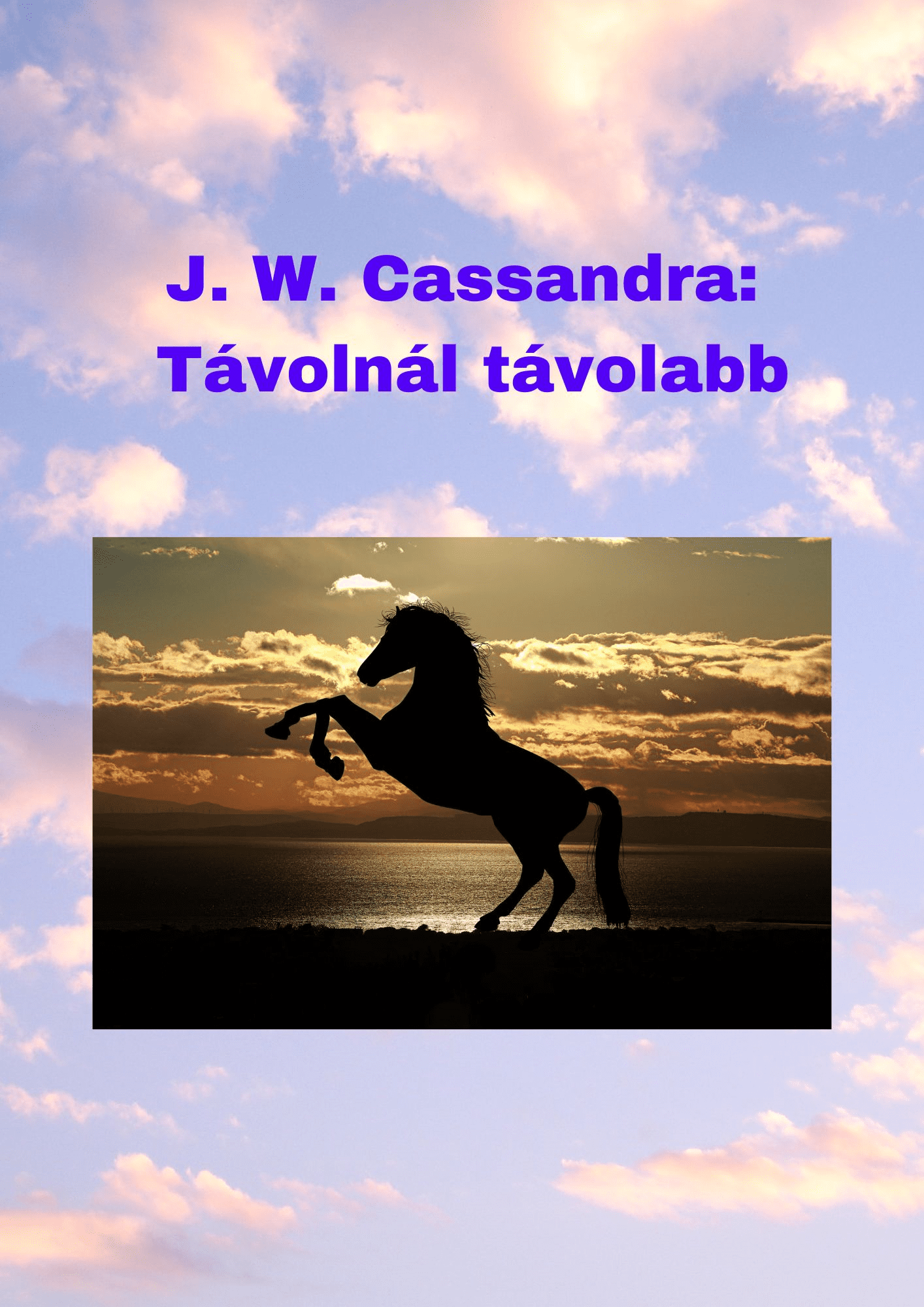



Everything that was, is below Swirling, underfoot: Eddying fog beneath feet The sea of clouds, wild, Wail, tears, pain, Grief, joy on my shoulders Everything that was is buzzing below: Now they are all left behind. Weightless levitation, Feather fluff circulation That became your bed, Cloak falls: your desire to be… Word is but futile: Being is an ebony horse, It flies nickering to heaven, And it falls, losing its tethers… Be though a pearl or a mud globe On the cloak of the being of form: Everything that was falls behind – Further afield than far away. And if the mind releases, Then only you are free. Then daybreak rises, Then your WORD sounds… The near is weightless, The far away comes this way. Space collapses, The ego goes to pieces, Time axis is breaking, Your bone is ground to dust: As a form you are empty, As a mind you are empty: Further afield than far away. 04 / 06. 2024., by J W. Cassandra
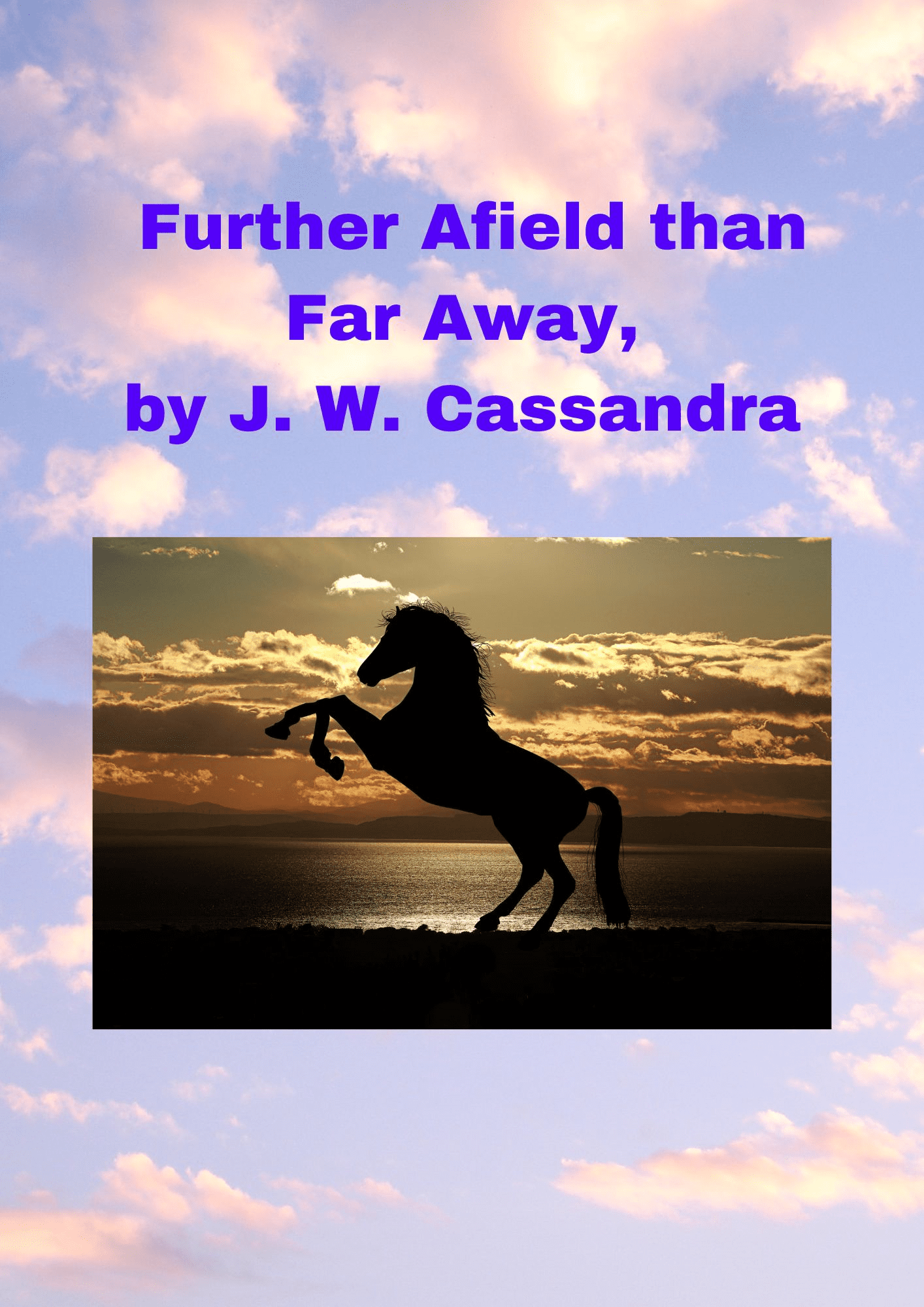



J. W. Cassandra: “Csillagjátszótereken kél…”: ezt a verset a 12. kötetemből osztom meg, az “Üresség-bölcsőben Képmás ring” címűből. Ez a kötetnyitó verse. Minden kötetem szigorú szerkezettel szerkesztem meg: egy mottó, az egész kötetre vonatkozó kötetnyitó vers, 21 ciklus 12 verssel, mellé mindegyikben egy 13., a nyitóvers az aktuális ciklushoz. És minden kötet kötetzáró verssel zárul. Ezen felül a kötetfolyamhoz írtam egy abszolút nyitó-, és egy záróverset. Minden kötetben 275 vers van. Még dolgozom a 13 – 18. köteten, ezek még nyitottak. Ez a vers pedig a 12. kötet kötetnyitó verse. Mind angolul, mind magyarul megosztom. Az illusztrációt a Canván készítettem, Gerd Altmann képét használtam fel a Pixabayről. (A csillag-ember). (“It Rises on Star-playgrounds…”, by J. W. Cassandra: this poem belongs to my volume 12, “Likeness Sways in Emptiness-cradle”. This is its overture poem. I edit my all volumes into a strict structure with a motto, an overture poem for the whole volume, then 21 cycles each one containing 12 poems with a 13. that is the opening poem of the actual cycle. And all volumes I finish with a closing poem for the whole volume. In addition, to the stream of the volumes I wrote an absolute overture and that of closing poem. In each volumes I placed 275 poems. And now I work on the 13 – 18 volumes, these are in progress yet. Well, this poem is the overture for the vol. 12. I share it both in English and Hungarian. Illustration I made on Canva, using a picture from Pixabay, made by Gerd Altmann. (The star-man).)
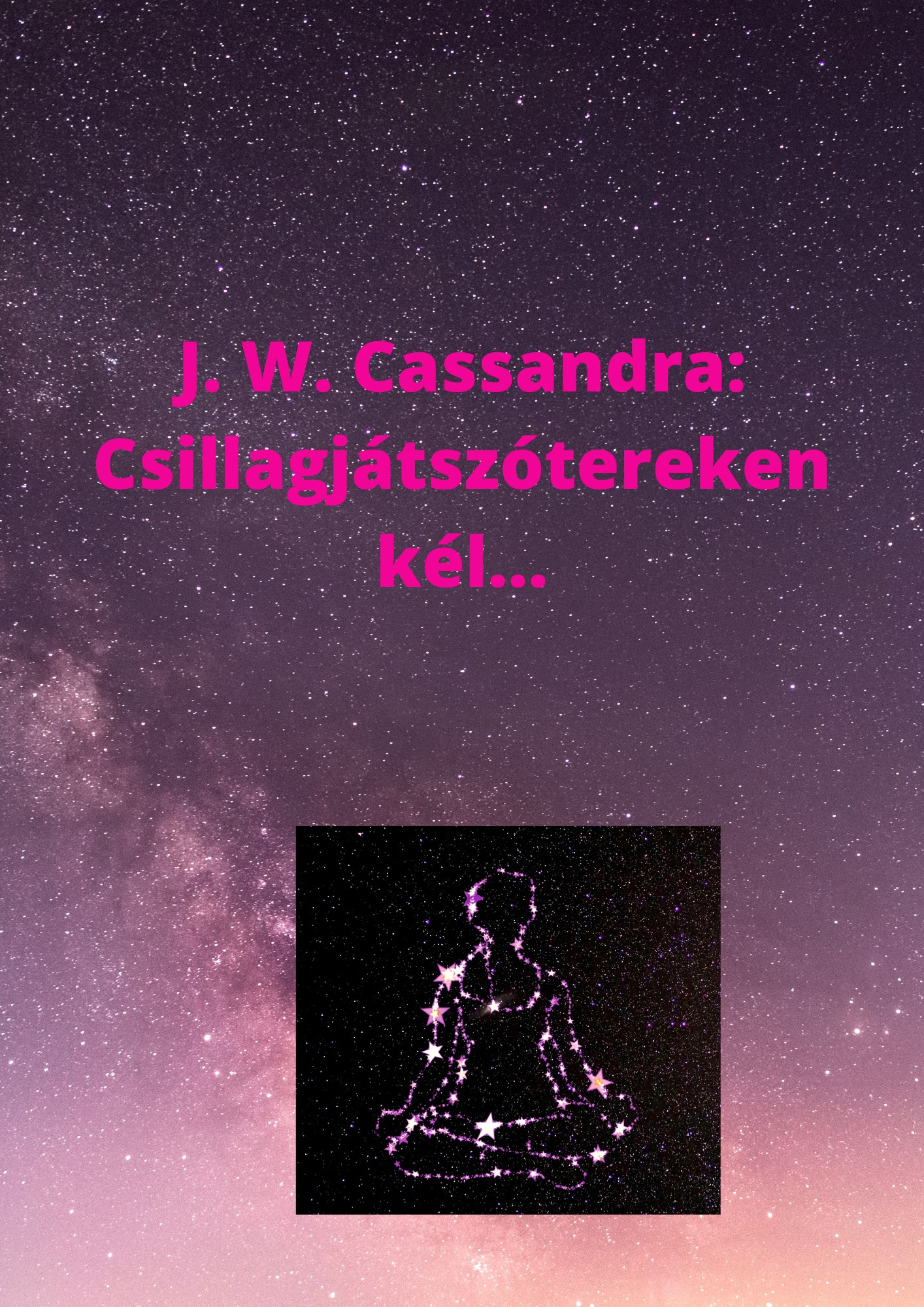

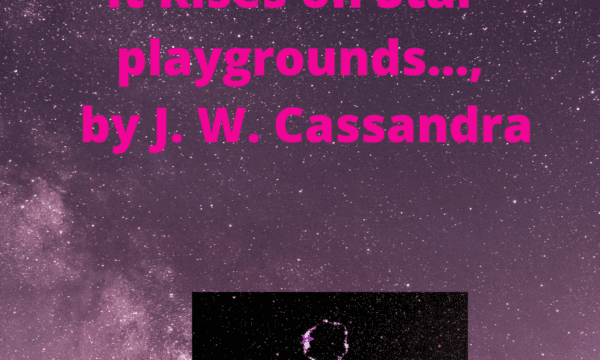

“It Rises on Star-playgrounds…”, by J. W. Cassandra: this poem belongs to my volume 12, “Likeness Sways in Emptiness-cradle”. This is its overture poem. I edit my all volumes into a strict structure with a motto, an overture poem for the whole volume, then 21 cycles each one containing 12 poems with a 13. that is the opening poem of the actual cycle. And all volumes I finish with a closing poem for the whole volume. In addition, to the stream of the volumes I wrote an absolute overture and that of closing poem. In each volumes I placed 275 poems. And now I work on the 13 – 18 volumes, these are in progress yet. Well, this poem is the overture for the vol. 12. I share it both in English and Hungarian. Illustration I made on Canva, using a picture from Pixabay, made by Gerd Altmann. (The star-man).
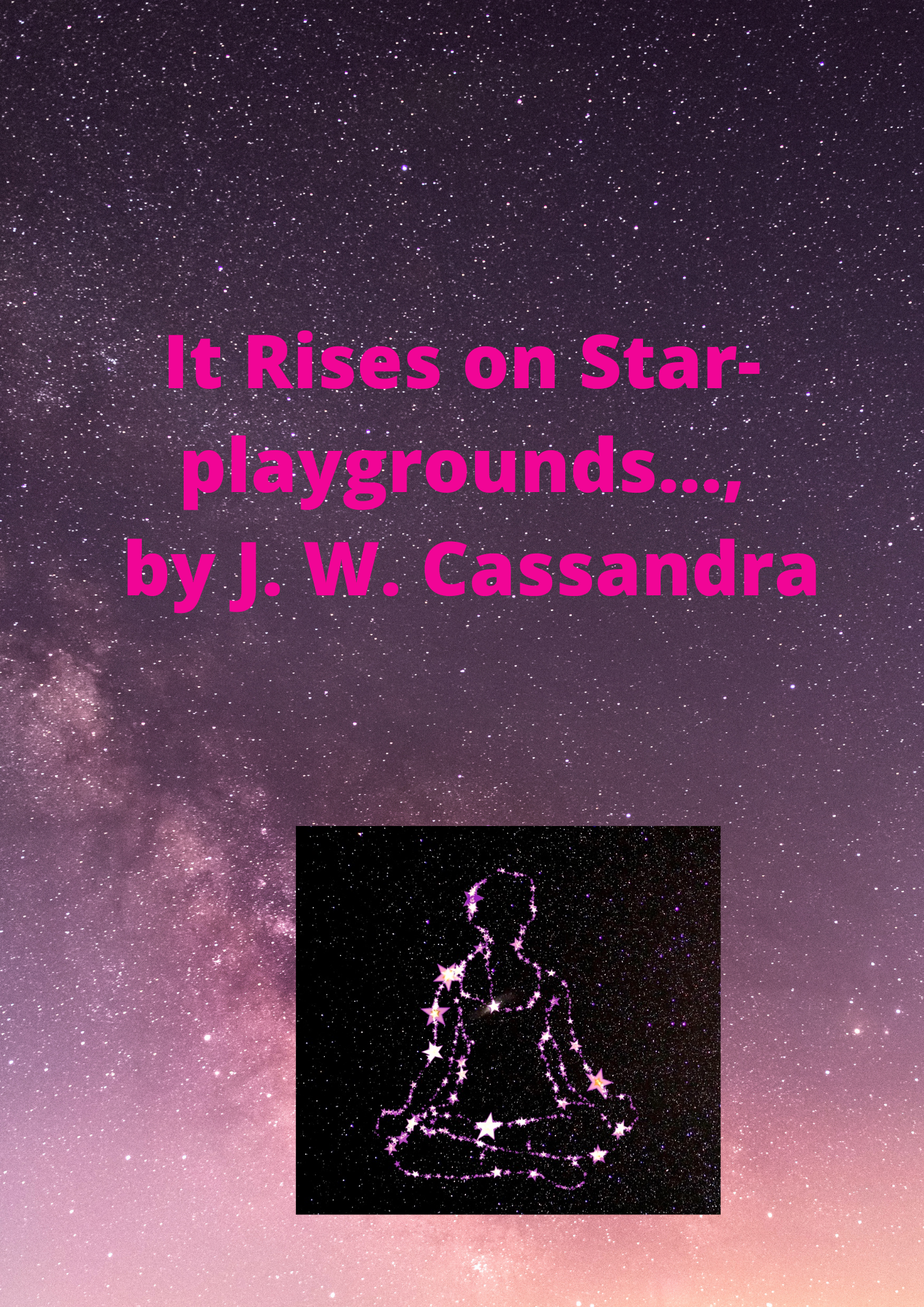



J. W. Cassandra: “Nem lesz ékkő”: ez a versem a 11. kötetmbe tartozik, a “Szabadító, jövel!” címűbe, a “Lélegző Majom” című ciklusba. A vers jelkép: a hatalmas távolságot és különbséget ábrázolja az emberi és a természetfölötti lényeké között. Csak ma készült el. Mind angolul, mind magyarul megosztom itt. Illusztráció: Andre Mouton, Pixabay. (“It Will Not Be a Gem”, by J. W. Cassandra. This poem belongs to my volume 11, “Rescuer, Come!”, to the cycle “Breathing Monkey”. The poem is a symbol: it describes the giant distance and distinction of wit of man compared to that of the supernatural beings. I made it only today. I share here both the English and the Hungarian versions. Illustration is by Andre Mouton, from Pixabay.)




“It Will Not Be a Gem”, by J. W. Cassandra. This poem beklongs to my volume 11, “Rescuer, Come!”, to the cycle “Breathing Monkey”. The poem is a symbol: it describes the giant distance and distinction of wit of man compared to that of the supernatural beings. I made it only today. I share here both the English nad the Hungarian versions. Illustration is by Andre Mouton, from Pixabay.




“The Castle under Raising”, by J. W. Cassandra. This poem is one of the poems mentioned by me 3 days ago in my description on the poem “Whispers of Tower of Silence”. This actual poem belongs to my volume 5, “Book of Resplendent Origin”, cycle “Tower of Silence”. I never thought it will gain its sad and urgent actuality right today, since I wrote all the poems of that volume in 2012 yet. But now I share this poem as a warning… We all are but mortal, nothing more. No matter what we “possess” here: the eternal silence seals everything. And all our “possession” remains in this bank, we depart to the farther bank with our only real possession – the pure love we gave or hadn’t given to others. This is our only geniza, namely house of treasure. I share the poem both in English and Hungarian. Illustration is byReinhold Silbermann, from Pixabay.




“The Castle under Raising”, by J. W. Cassandra. This poem is one of the poems mentioned by me 3 days ago in my description on the poem “Whispers of Tower of Silence”. This actual poem belongs to my volume 5, “Book of Resplendent Origin”, cycle “Tower of Silence”. I never thought it will gain its sad and urgent actuality right today, since I wrote all the poems of that volume in 2012 yet. But now I share this poem as a warning… We all are but mortal, nothing more. No matter what we “possess” here: the eternal silence seals everything. And all our “possession” remains in this bank, we depart to the farther bank with our only real possession – the pure love we gave or hadn’t given to others. This is our only geniza, namely house of treasure. I share the poem both in English and Hungarian. Illustration is byReinhold Silbermann, from Pixabay.


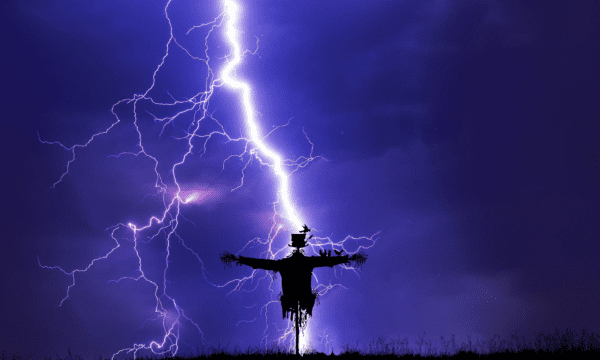

J. W. Cassandra: Villámcsapás sárgolyóba. Ez a legújabb versem, amelyet tegnap reggel írtam. Csak ma adtam neki címet. Ez a vers az uralomról vagy a hatalomról, a megtévesztésről, a büszkeségről, az önámításról és még sok minden másról szól. Ez magába foglalja a filozófia sok rétegét. Szerettem volna egyetemessé tenni és kiterjeszteni versem üzenetét globális érvényességgel. Szándékosan írtam modern formában, írásjelek nélkül. Még nem tettem bele egyik kötetembe sem. Illusztráció: Rene Rauschenberger, Pixabay. (Thunderstroke into a Mud Globe, by J. W. Cassandra: This is my newest poem, written yesterday in the morning. I gave it a title only today and I think this poem tells about mastership or might, about delusion, pride, self-deception and much more. It involves in itself yet many layers of philosophy, as well. I wanted to universalize and extend the message of my poem to a global validity. I wrote it intentionally in a modern form, without punctuation. I did not place it into any of my volumes yet. Illustration: by Rene Rauschenberger, from Pixabay.)
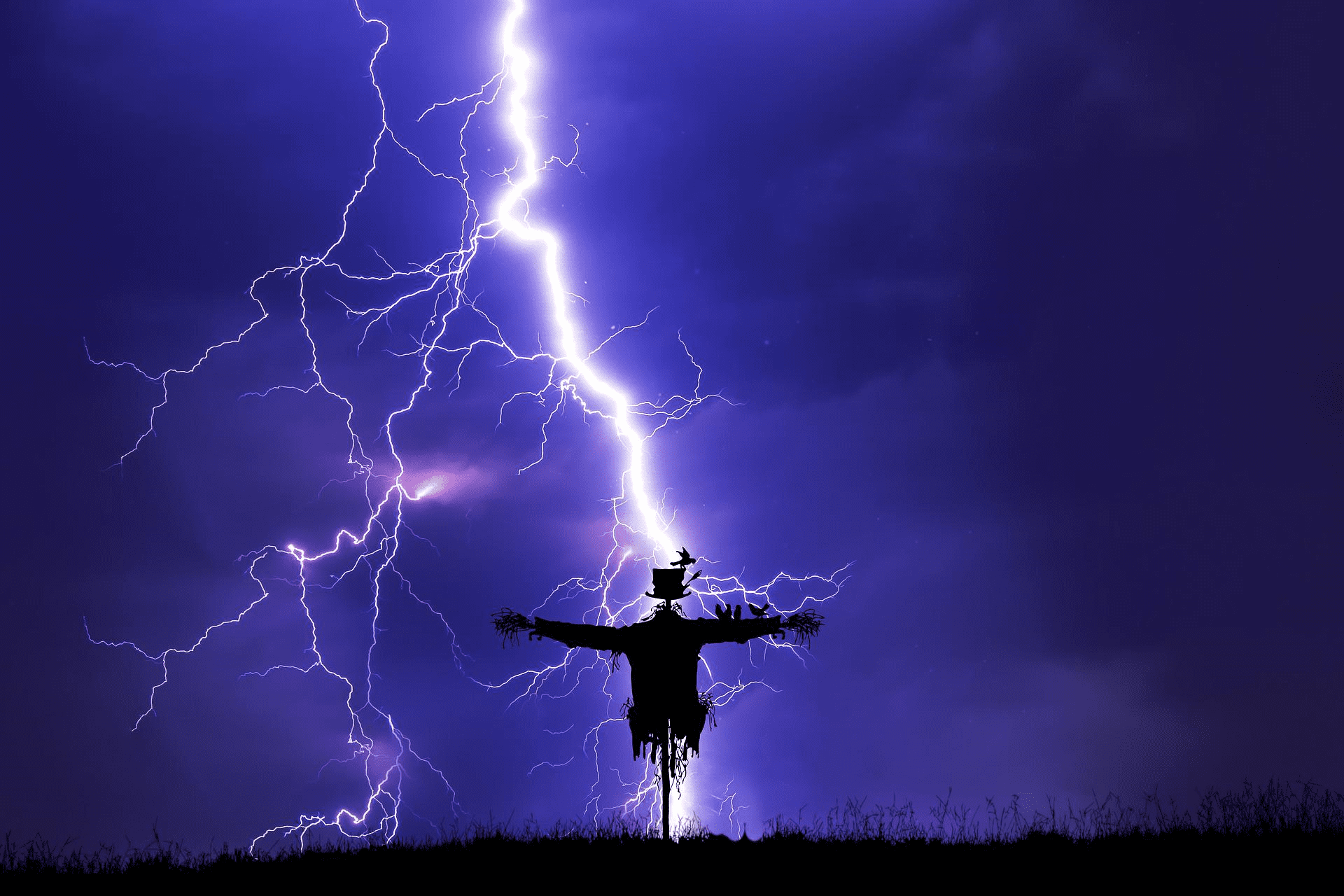

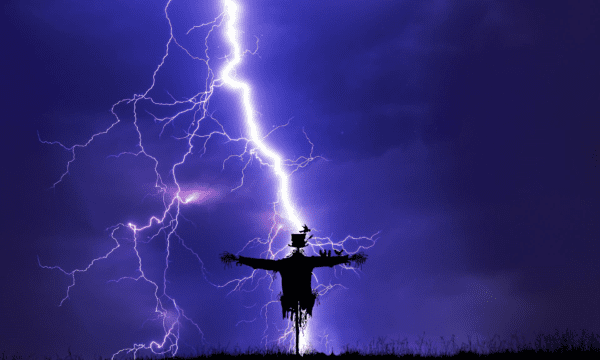

Thunderstroke into a Mud Globe, by J. W. Cassandra: This is my newest poem, written yesterday in the morning. I gave it a title only today and I think this poem tells about mastership or might, about delusion, pride, self-deception and much more. It involves in itself yet many layers of philosophy, as well. I wanted to universalize and extend the message of my poem to a global validity. I wrote it intentionally in a modern form, without punctuation. I did not place it into any of my volumes yet. Illustration: by Rene Rauschenberger, from Pixabay.
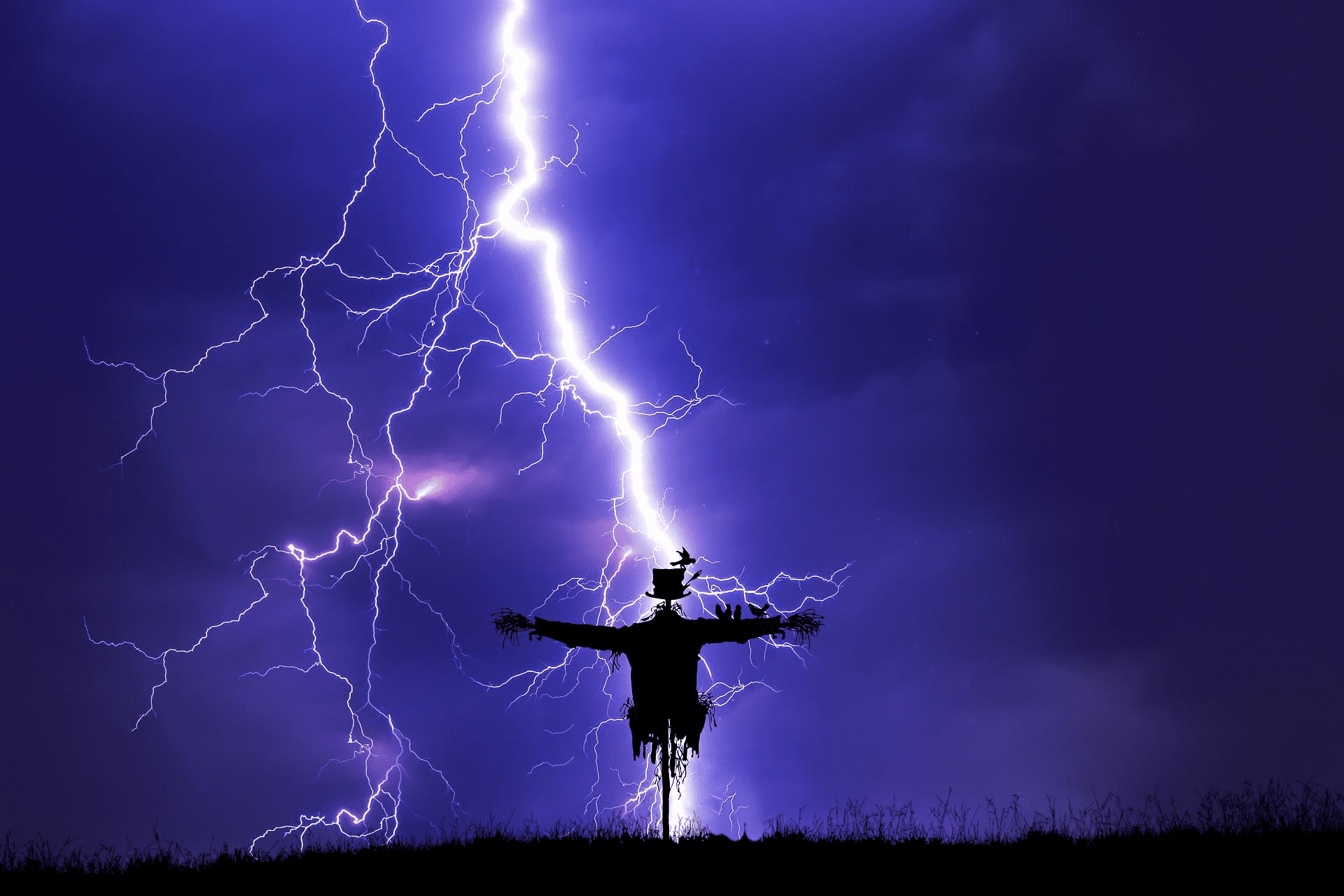

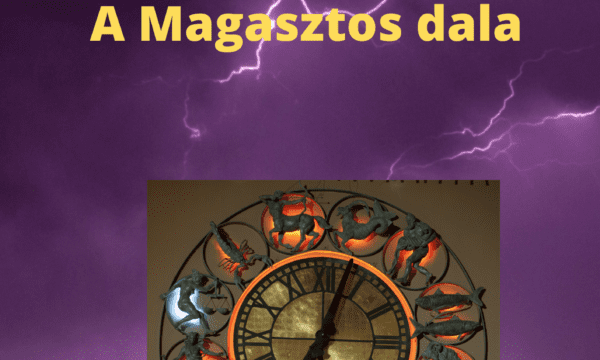

J. W. Cassandra: A Magasztos dala: ezt a verset régóta meg akartam itt osztani. „A Csend dalai” ciklusba tartozik, egyelőre kötet nélkül. Maga a vers egy új korszak közelgő teremtéséről szól, az idők végéről és a zengő hangról, amely énekelve teremt a csend falán… Illusztráció: David Mark. Pixabay. Most a magyar változatot osztom meg, az előbb pedig az angolt töltöttem föl. Remélem, tetszik! (Song of the Majestic, by J. W. Cassandra: this poem I wanted to share here for a long time. It belongs to the cycle “Song of Silence” for a while beyond a volume. The poem itself tells about the coming creation of a new epoch, about end of time and a resounding voice that creates singing on wall of silence… Illustration is by David Mark, from Pixabay. Here I share the Hungarian version and right before I uploaded the English poem, as well. I hope you will like it!)
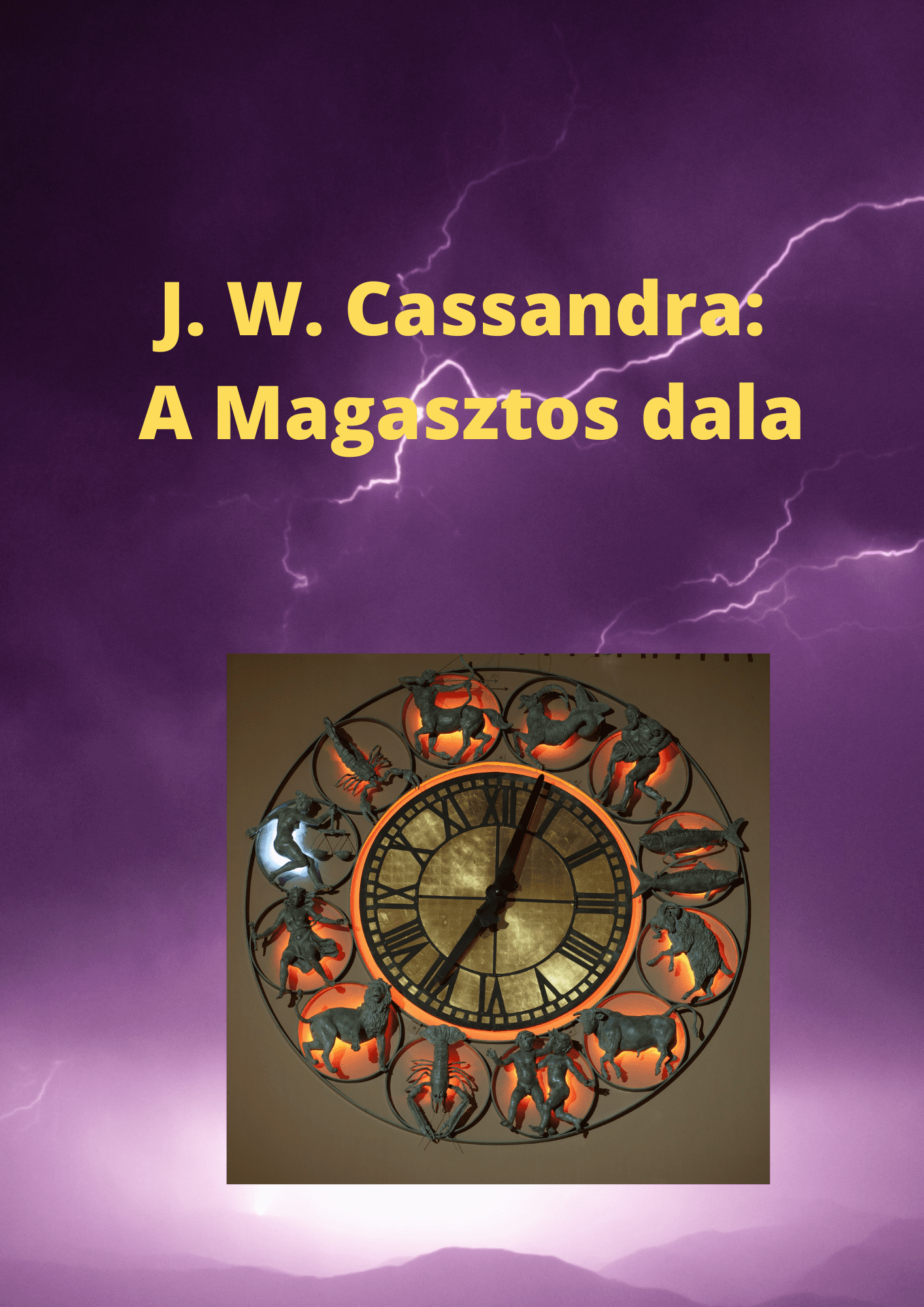

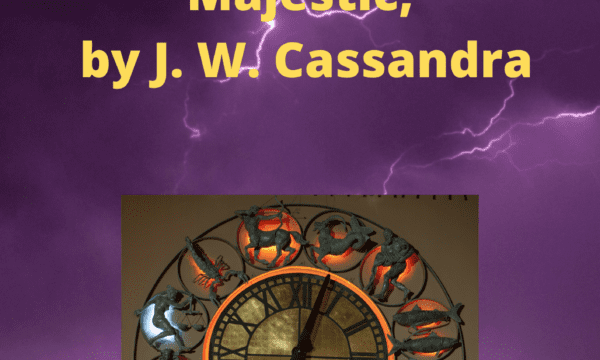

Song of the Majestic, by J. W. Cassandra: this poem I wanted to share here for a long time. It belongs to the cycle “Song of Silence” for a while beyond a volume. The poem itself tells about the coming creation of a new epoch, about end of time and a resounding voice that creates singing on wall of silence… Illustration is by David Mark, from Pixabay. Here I share the English version and right after this one the Hungarian poem, as well. I hope you will like it!
